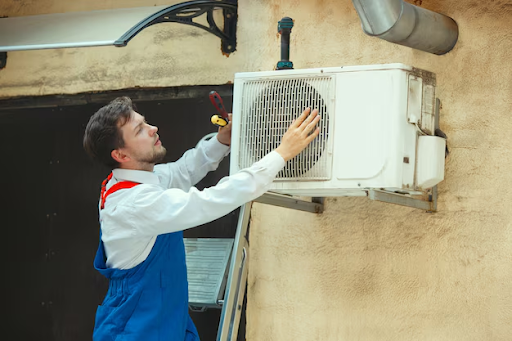When the summer heat sets in, a malfunctioning cooling system can be more than just an inconvenience – it can be a serious threat to your health, wallet, and home. While it may seem like a minor issue, a broken cooling system can lead to a range of hidden dangers that can have long-term consequences.
Increased Energy Bills
One of the most obvious consequences of a malfunctioning cooling system is increased energy bills. When your system is not running efficiently, it has to work harder to cool your home, resulting in higher energy consumption. This can lead to a significant increase in your energy bills, putting a strain on your wallet. A study by the U.S. Department of Energy found that a malfunctioning cooling system can increase energy bills by up to 20% and residential hvac repair is essential to ensure that your system is running efficiently and effectively.
Mold and Mildew Growth
A malfunctioning cooling system can also lead to mold and mildew growth in your home. When the system is not functioning properly, it can create a humid environment that is conducive to mold and mildew growth. This can lead to a range of health problems, including respiratory issues and allergic reactions. Furthermore, mold and mildew can also damage your home’s structure and furnishings, leading to costly repairs. Regular residential HVAC repair can help prevent mold and mildew growth by ensuring that your system is running efficiently and effectively.
Health Risks
A malfunctioning cooling system can also pose serious health risks, particularly for vulnerable individuals such as the elderly and young children. When the system is not functioning properly, it can lead to a buildup of heat in the home, which can cause heat-related illnesses such as heat exhaustion and heat stroke. Furthermore, a malfunctioning system can also lead to poor indoor air quality, which can exacerbate respiratory issues such as asthma.
Fire Hazards
A malfunctioning cooling system can also pose a fire hazard in your home. When the system is not functioning properly, it can overheat, leading to a fire. In fact, according to the National Fire Protection Association, electrical failures are the leading cause of home fires. Regular ac repair can help prevent electrical failures and reduce the risk of a fire in your home.
Reduced System Lifespan
Finally, a malfunctioning cooling system can also reduce the lifespan of your system. When the system is not functioning properly, it can lead to premature wear and tear on the components, reducing its lifespan. This can lead to costly repairs and even replacement of the system. Regular AC repair can help extend the lifespan of your system, saving you money in the long run.
Conclusion
In conclusion, a malfunctioning cooling system can pose a range of hidden dangers to your health, wallet, and home. From increased energy bills to mold and mildew growth, health risks, fire hazards, and reduced system lifespan, the consequences of a broken cooling system can be severe. Regular maintenance and repair of your cooling system can help prevent these dangers and ensure that your home remains cool, comfortable, and safe.

